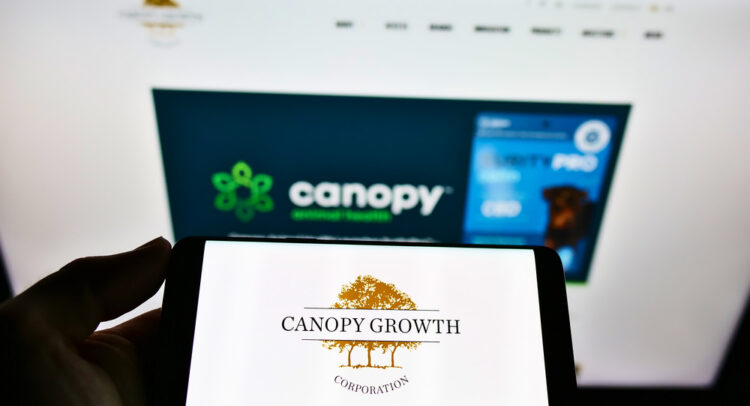A class action lawsuit was filed against Canopy Growth Corporation (CGC) by Levi & Korsinsky on April 4, 2025. The plaintiffs (shareholders) alleged that they bought CGC stock at artificially inflated prices between May 30, 2024 and February 6, 2025 (Class Period) and are now seeking compensation for their financial losses. Investors who bought Canopy Growth stock during that period can click here to learn about joining the lawsuit.
Elevate Your Investing Strategy:
- Take advantage of TipRanks Premium at 50% off! Unlock powerful investing tools, advanced data, and expert analyst insights to help you invest with confidence.
Canopy Growth is a Canadian cannabis company that develops, distributes, and sells cannabis and hemp-based products across Canada, the U.S., Germany, and other countries. Its products are available in multiple forms, including pre-rolled joints, edibles, capsules, and infused drinks.
The company’s claims about its cost management techniques related to the production of Claybourne pre-rolled joints and Storz & Bickel vaporizer devices are at the heart of the current complaint.
Canopy Growth’s Misleading Claims
According to the lawsuit, Canopy Growth and two of its current and/or former senior officers (Individual Defendants) repeatedly made false and misleading public statements throughout the Class Period. Particularly, they are accused of omitting truthful information about certain costs and the efficacy of Canopy’s cost reduction measures from SEC filings and related material.
For instance, during the Class Period, the former-CEO mentioned that the company exhibited attractive gross margin profiles across all its businesses. In the same earnings call, the CFO noted that Canopy had installed a new, flexible pre-roll machine, which was expected to significantly ramp up pre-roll production and reduce labor expenses.
Furthermore, in its Fiscal 2024 annual report, CGC attributed its improving gross margins within the Canada Cannabis segment to the effective cost-savings program initiated in Q4FY23. Plus, the company reported a year-over-year decline in write-downs of excess inventory, aided by strategic business initiatives.
Finally, in its August 9, 2024 earnings call, the CFO mentioned that CGC’s strategic measures had led to improved gross margins and adjusted EBITDA (earnings before interest, tax, depreciation, and amortization), and meaningful savings in SG&A (selling, general, and administration) expenses.
However, subsequent events (discussed below) revealed that Canopy Growth had misled investors about the effectiveness of its cost-saving plans, which adversely impacted its margins and overall financial health.
Plaintiffs’ Arguments
The plaintiffs maintain that the defendants deceived investors by lying and withholding critical information about the business practices and prospects during the Class Period. Importantly, the defendants are accused of misleading investors about the company’s elevated costs associated with the Canadian launch of Claybourne pre-rolled joints, as well as indirect costs related to its Storz & Bickel vaporizer devices.
The information became clear on February 7, 2025, when Canopy Growth published its Q3FY25 results. During the quarter, the company’s gross margins contracted by 400 basis points (bps) to 32%. Canopy Growth attributed the decline to incremental costs related to the Claybourne infused pre-roll launch in Canada and an increase in indirect costs (shipping costs) of Storz & Bickel vaporizer devices. Following the news, CGC stock collapsed 27.3% on February 8.
To conclude, the defendants allegedly misled investors regarding the company’s elevated product costs and related impact on margins and overall financial health. Owing to these issues, CGC stock has lost 40.2% so far this year, causing massive damage to shareholder returns.

















